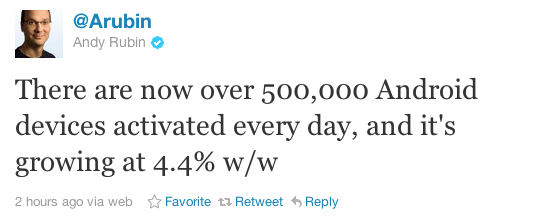Android activations soar, not very many are tablets


No one is sharing actual sales numbers, but it has been tossed around that the major tablet players have only seen a few hundred thousand sales of the top models. That is a mere drop in the bucket of total Android activations; it is certainly a far cry from the sales of the iPad by Apple.
Google is activating so many Android devices, phones or otherwise, that it really doesn't need the Honeycomb tablet to take off to compete with any company. The sheer number of phone activations puts Android firmly in a great position in the mobile space no matter what tablets do in the market. Where Google has to be careful at this point in the life of Android is to not let the drive for tablet development affect the smartphone side of the business.
The company intends to turn the next big version of Android, aka Ice Cream Sandwich, into the OS version that unifies the phone and tablet side of the platform. This is a nice goal, but it would be quite silly to let the OS get driven by the tablet side of things at the expense of the smartphone. Google would be wise to leave the dance with the one who brought it, and that is the smartphone, no question.
See related coverage: